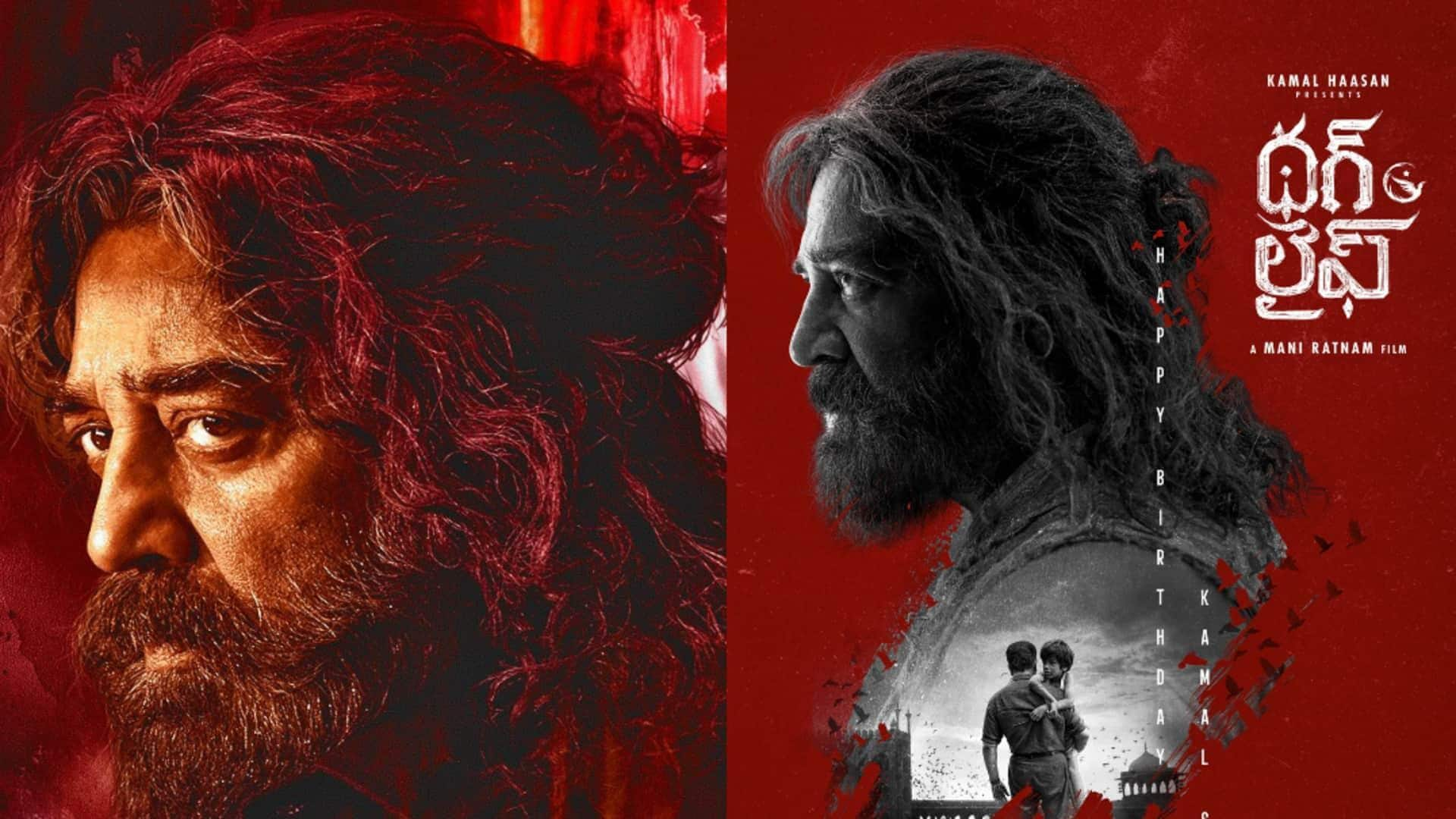
'Thug Life' review: Kamal Haasan's film is watchable but overstretched
What's the story
Mani Ratnam-Kamal Haasan's Thug Life marks the reunion of the two legends after Nayakan (1987). It has a pan-Indian appeal, is backed by Ratnam's frequent collaborator AR Rahman's music, and is designed to feel familiar yet fresh. The film has a lot going for it in the first-half, offering gripping and unforgettable moments, but completely nosedives post-intermission. Here's our review of Thug Life (Hindi).
Plot
What happens when your son seemingly turns on you?
Thug Life revolves around a gangster named Sakthivel (Haasan) and his brother Manickam, played by Nassar. During a violent police shootout, Sakthivel saves a young boy named Amar (Silambarasan TR) and raises him like his own son. Years later, cracks begin to develop in their relationship, and an assassination attempt on Sakthivel makes him question Amar's loyalty. Is Amar actually guilty?
#1
Positives: It's extremely gripping and immersive in the beginning
Thug Life begins with a stunning monochrome sequence that tells us everything we need to know about Sakthivel and his past. The camera moves with slick precision when capturing the intense shootout; the characters are firmly established within minutes, and Ratnam finds consistency in chaos. Since these scenes are soaked in black-and-white, it truly feels like this tale is frozen in time.
#2
More on the above aspect
This sequence (and a few others after this) features a fantastically de-aged Haasan, in what's perhaps the best example of de-aging in Indian cinema lately. Much of the first half offers effortlessly gripping sequences, and Ratnam invites you into his world and doesn't let you go. Ravi K. Chandran's cinematography is another standout—the gorgeous, vibrant frames complement Ratnam's storytelling.
#3
Doesn't overdo its character introductions
Another aspect I like about Thug Life is how it mostly doesn't overly rely on slow-motions or long-drawn-out introduction sequences. And yet, when a new character enters the frame, you immediately take notice, because there's a discernible shift in the film's energy. This is particularly true for Trisha's (42) character, Indrani, and Ali Fazal's character, Deepak.
#4
Focuses effectively on scheming, betrayal, and manipulation
Thug Life repeatedly asks: What do blood ties mean? How do you define a friend, an enemy? Some narrative elements and turns take you by surprise, and the film gradually builds the conflict between Amar and Sakthivel, asking you to notice it. As for the acting, STR and Haasan emerge as the strongest performers, and Fazal also leaves an impact despite his brief role.
#5
Negatives: Film goes completely haywire post-intermission
After a gripping first-half, Thug Life doesn't know what to do with itself. The film begins going up in flames due to its hollow writing, the lack of twists bothers you, and the movie gets stuck in a rut. Most of the second half is monotonous, and Thug Life is the prime example of how the second-half curse can capsize an ambitious, promising project.
#6
Another mainstream film with shallow female characters
It's disappointing to see Ratnam write weak, forgettable female characters. They exist simply because they have to; their life is completely tied to men, and the writing lacks space—or respect—for them. Be it Indrani or Sakthivel's wife, Jeeva (Abhirami), Thug Life has no regard for its female characters. Plus, the fact that they're paired opposite a much-older Haasan (70) means their "romance" is jarring.
#7
The screenplay creaks under the weight of film's ambition
The world of Thug Life is populated by numerous actors, and it struggles to adjust Fazal, Rohit Saraf, Aishwarya Lekshmi, and Mahesh Manjrekar, among others. Most supporting actors either have extremely brief roles or disappear from the screen for long stretches at a time. When the film doesn't know what to do with a character, the script simply kills them.
Verdict
Can skip in theaters, watch on OTT; 2.5/5 stars
Thug Life is neither brilliant nor overwhelmingly bad. It sets up some momentous, key sequences in a solid manner, but the final payoff isn't completely convincing. Plus, the movie has no business being this long (it runs for over 160 minutes). Despite these problems, Ratnam's innate brilliance is visible in numerous sequences, and the cinematography never misses. 2.5/5 stars.